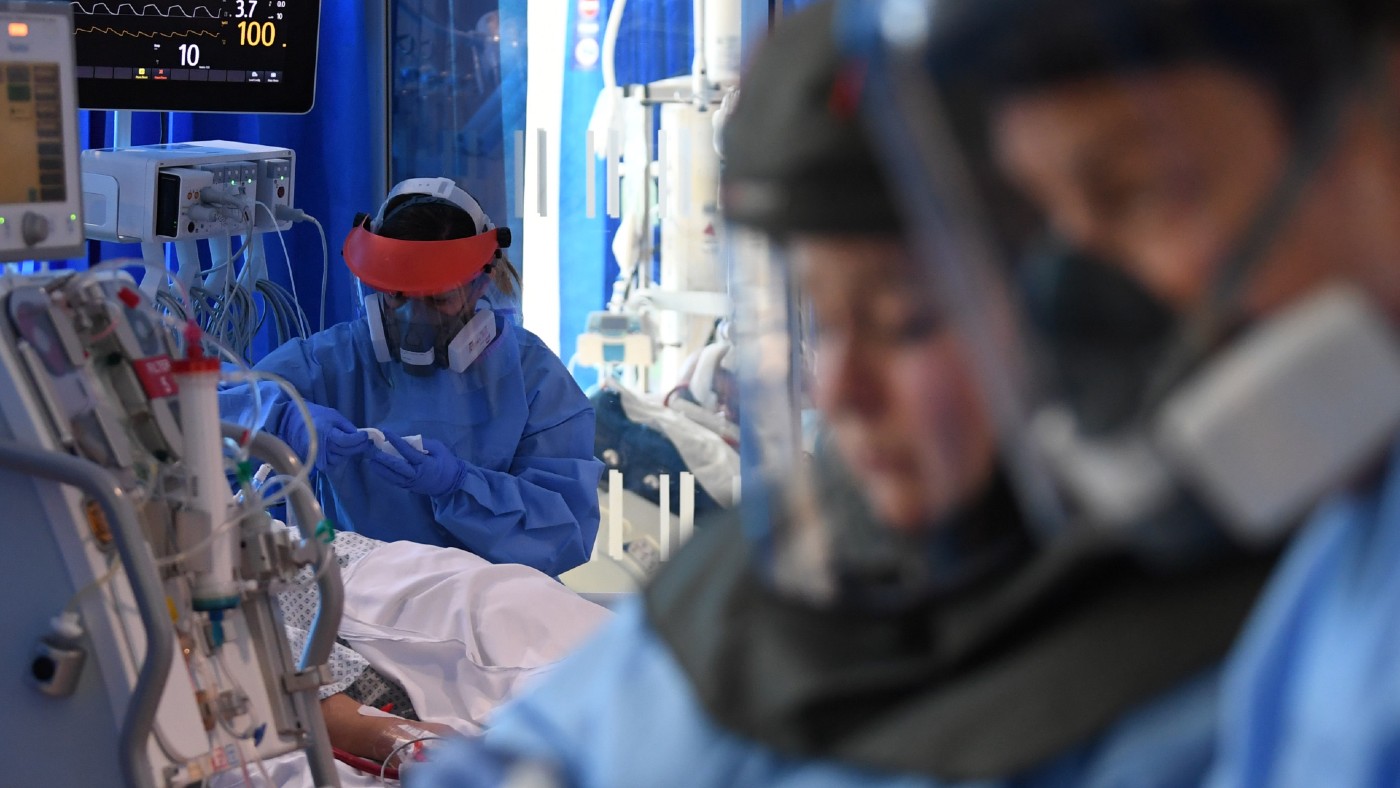Coronavirus: could arthritis drug ease the NHS Covid crisis?
Tocilizumab found to cut risk of death for most critically ill coronavirus patients by almost a quarter

A free daily email with the biggest news stories of the day – and the best features from TheWeek.com
You are now subscribed
Your newsletter sign-up was successful
Overwhelmed NHS hospitals are to begin treating critically ill Covid-19 patients with an arthritis drug that new research suggests may reduce the time they spend in intensive care by up to ten days.
Tocilizumab, a drug normally prescribed for severe rheumatoid arthritis, has also been found to cut the risk of death in the most serious coronavirus cases by 24%.
The Times reports that “updated guidance will be issued to NHS hospitals today encouraging them to use Tocilizumab in their treatment of Covid-19 patients”, after Boris Johnson last night announced that the plan had been given NHS approval.
The Week
Escape your echo chamber. Get the facts behind the news, plus analysis from multiple perspectives.

Sign up for The Week's Free Newsletters
From our morning news briefing to a weekly Good News Newsletter, get the best of The Week delivered directly to your inbox.
From our morning news briefing to a weekly Good News Newsletter, get the best of The Week delivered directly to your inbox.
“These life-saving drugs will be available through the NHS with immediate effect, potentially saving thousands of lives,” the prime minister said at the daily Downing Street briefing.
NHS England’s medical director for London warned earlier this week that London’s hospitals could face a shortfall of more than 5,400 intensive care beds within two weeks.
Simon Stevens, chief executive of NHS England, echoed that warning at yesterday’s briefing, saying that the health service was facing an “incredibly serious situation” as Covid admissions accelerate “very, very rapidly”.
Imperial College London professor Anthony Gordon, who led the recent study into the effectiveness of Tocilizumab, says the findings “could have immediate implications for the sickest patients with Covid-19”.
A free daily email with the biggest news stories of the day – and the best features from TheWeek.com
The medicine costs between about £750 and £1,000 per patient, depending on the weight of the individual.
But as The Guardian reports, “Gordon said the therapies were still cost-effective given the lives they would save and the impact on time spent in intensive care”.
“A day in the intensive care unit can cost close to £2,000 a day,” he added.
Another arthritis drug, Sarilumab, also appears to offer similar benefits, “not only saving lives but cutting the length of time patients spent in intensive care”, says the newspaper.
Both of the medications are IL-6 receptor antagonists, which reduce the effect of proteins that can cause an overreaction of the immune system.
The use of the two arthritis drugs to treat Covid patients has been hailed by Dr Hilary Jones, The Sun reports.
The Good Morning Britain regular explained that for every 12 Covid patients in intensive care treated with the medications, one life would be saved.
“Compare that to statins, which millions of people are on, you’ve got to treat 100 people to save two lives,” he said.
Chas Newkey-Burden has been part of The Week Digital team for more than a decade and a journalist for 25 years, starting out on the irreverent football weekly 90 Minutes, before moving to lifestyle magazines Loaded and Attitude. He was a columnist for The Big Issue and landed a world exclusive with David Beckham that became the weekly magazine’s bestselling issue. He now writes regularly for The Guardian, The Telegraph, The Independent, Metro, FourFourTwo and the i new site. He is also the author of a number of non-fiction books.